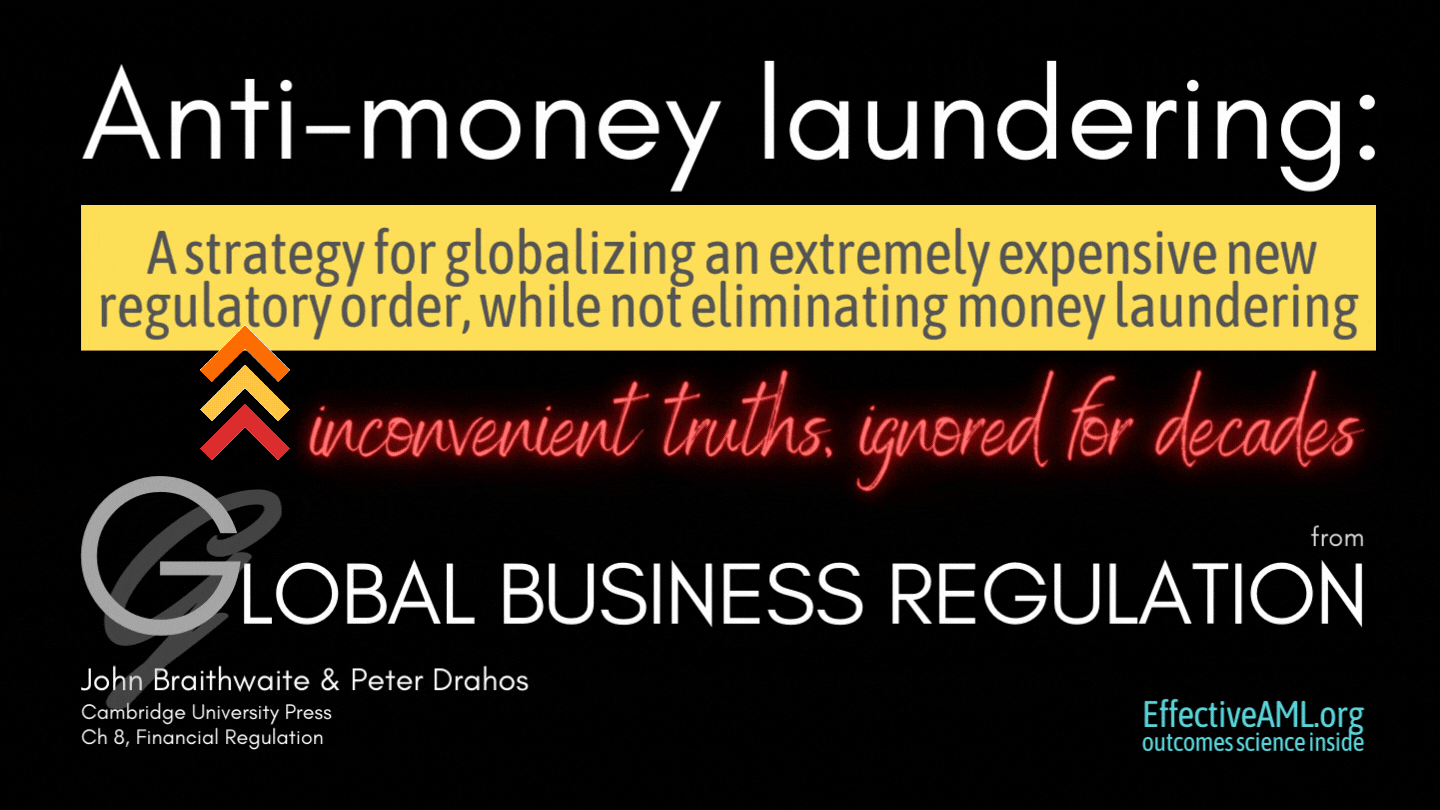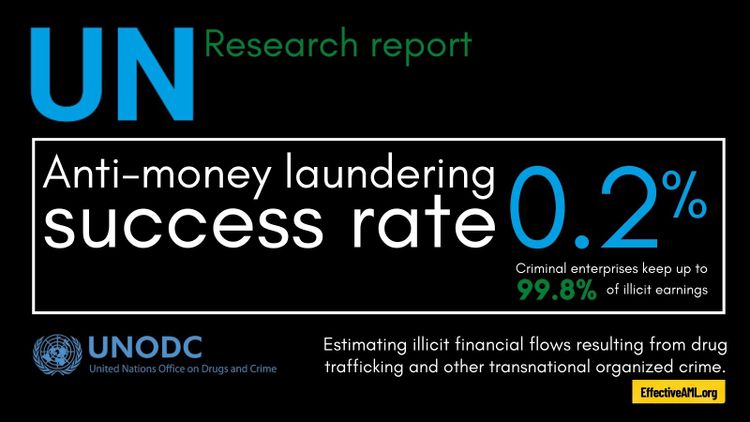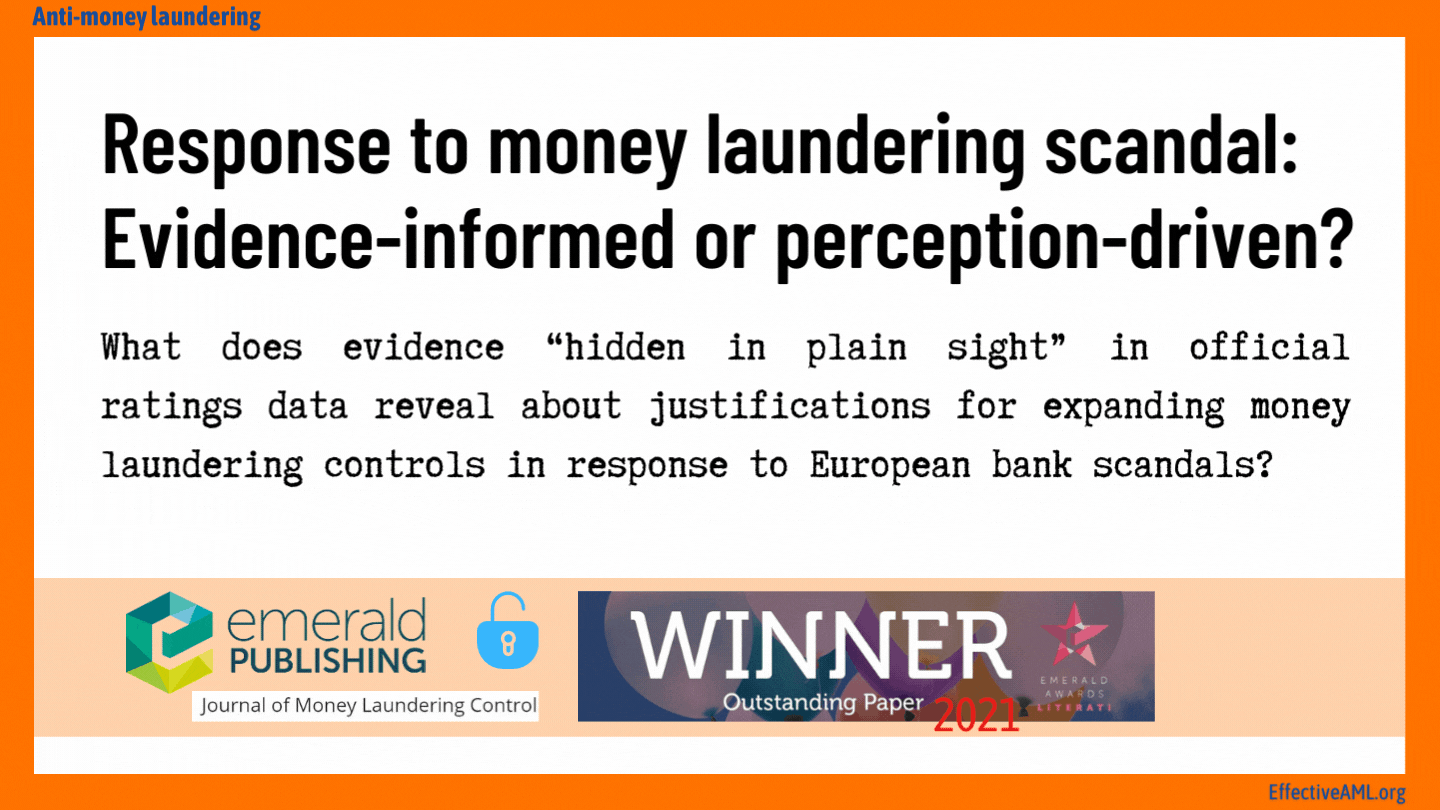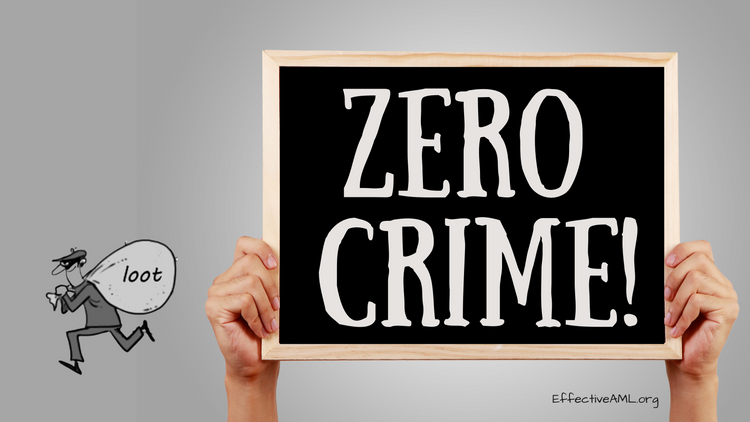"Transparency” industry staunchly tight-lipped

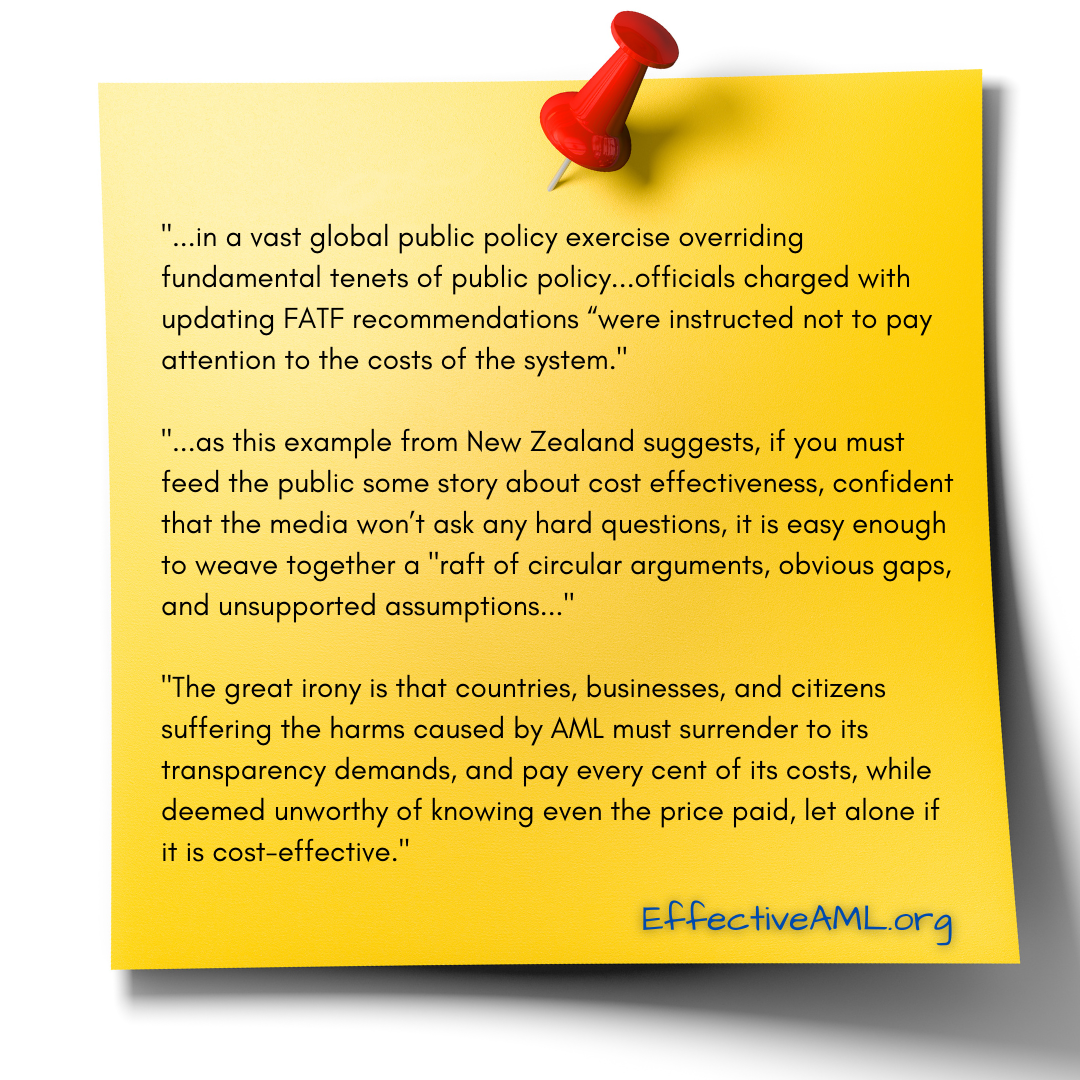
The anti-money laundering movement demands transparency, with industry leaders, experts, NGOs, and journalists repeatedly calling for laws stripping away secrecy. Businesses and individuals must all be transparent, they thunder in unison, frequently outraged by calls for privacy, security, legitimate secrecy, and other such quaint concepts.
Fair enough, perhaps (deeper analysis reveals transparency is not the magical elixir oft claimed), yet, curiously, the anti-money laundering industrial compliance complex itself shuns transparency, notably about the costs imposed on governments and businesses, and ordinary folks – as customers, shareholders, and taxpayers – who ultimately pay every cent of an astonishingly expensive exercise.
The costs of the crusade against money laundering might be worthwhile. Or not. However, notwithstanding armies of transparency advocates, NGOs, and journalists with finely honed outrage sensors perfectly attuned for the slightest hint of transparency hesitancy, straight out transparency denial on a global scale passes without oversight, unnoticed, free from questioning for more than three decades.

